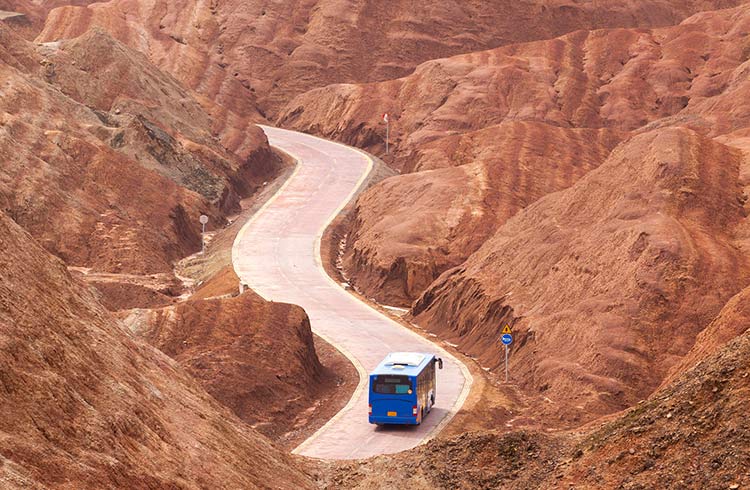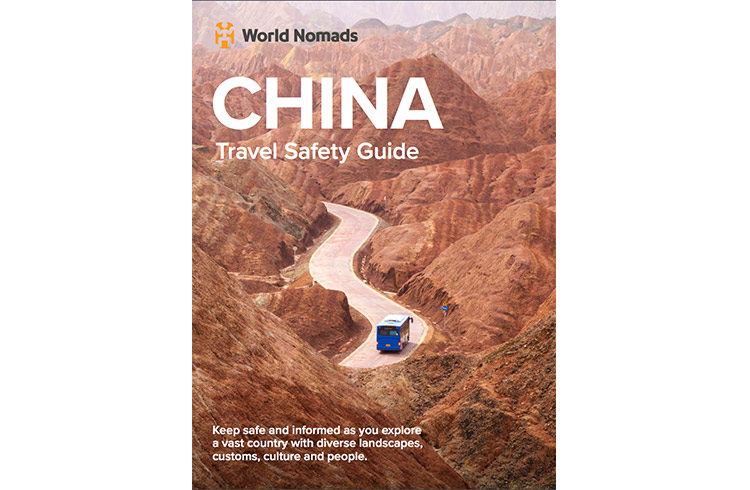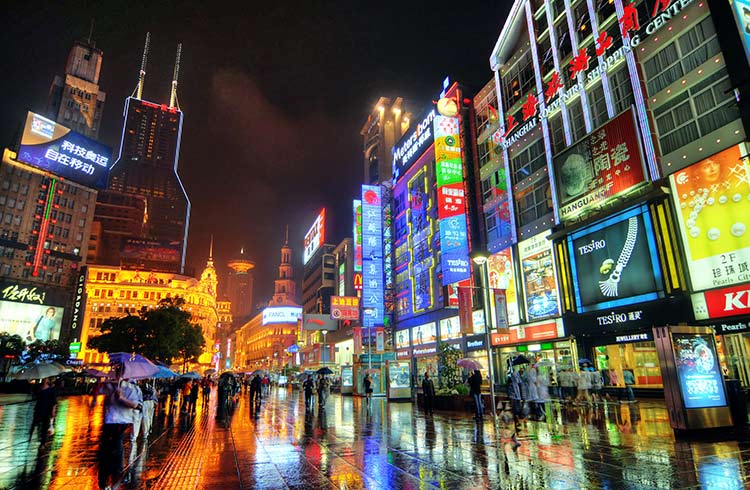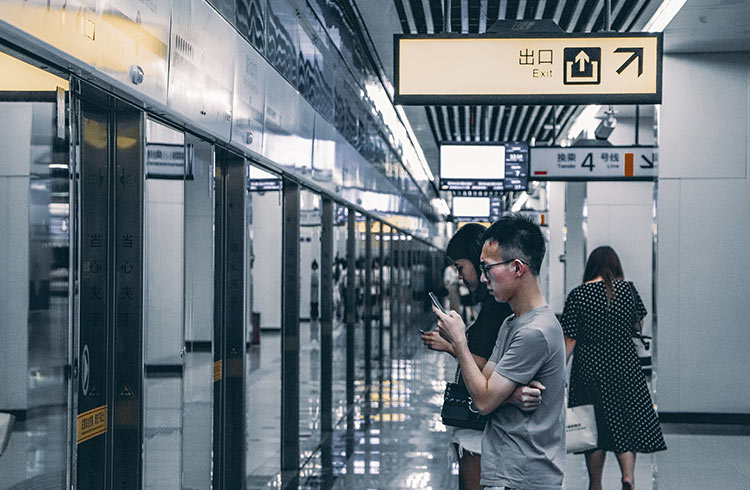Is China Safe? Our Expert Safety Advice For Your Trip
China is a vast country with diverse landscapes, customs, cultures and people – lots of people. Joanna Tovia shares her tips to keep you safe and informed while exploring the Middle Kingdom.
 Photo © Stocksy/Bo Bo
Photo © Stocksy/Bo Bo
- Visas and registration
- 9 important safety tips for China
- Natural disasters in China
- Surveillance in China
- Police corruption in China
- Death penalty and laws in China
- Banned activities in China
- Top 10 tourist cons in China
- Download our free guide to safety in China
- Listen to The World Nomads Podcast: China
Visas and registration
Before you leave – visas for China
Planning ahead is wise when it comes to travel, but there is such a thing as planning too far ahead if you’re going to China; apply too early for your visa and it will run out before you have a chance to use it.
Apply for your visa about a month prior to departure and keep in mind that the ‘valid until’ date indicates the date by which you must enter the country for your visa to remain valid.
A tourist visa generally allows you to spend up to 30 days in mainland China, but if you’re planning on coming and going from Hong Kong, Macau or elsewhere, you’ll need a double – or multiple – entry visa. A detailed itinerary and hotel booking confirmation, or a letter of invitation from a family member or friend living in China (along with a copy of the information page in their passport) will be required as part of your application.
Plans can change once there, of course, but it isn’t difficult to organize a short visa extension on a single-entry tourist visa. The Foreign Affairs Branch of the local Public Security Bureau is your friend on this one. Just make sure you apply at least a week before your visa is due to run out, and make sure you have at least six months remaining on the validity of your passport from the date you intend to leave.
Whatever you do, don’t overstay your visa. If you can’t avoid it, expect fines of up to ¥500 a day and a potential ban from returning for up to 10 years. If you happen to be arrested and detained while you’re there, visa overstay fines will still apply.
When you get there – registration in China
China takes security threats seriously, and officials like to keep an eye on where travelers go and what they’re doing while they’re there. Fingerprinting visitors on arrival has been standard procedure since 2017, and every visitor to China must register their place of residence with the local Public Security Bureau within 24 hours.
This is a simple process if you’re staying at a hotel – it’s part of check-in – but if you’re staying at an Airbnb and your host doesn’t take care of this for you, you’ll need to pay a visit to your nearest police station to do so yourself.
Be sure to download the Google Translate app before you go (you won’t be able to download it once in China) in case there isn’t an English speaker at the police station.
If it seems a little extreme to have to register every time you travel on to a new town or city within China, avoid the temptation to skip this necessary procedure. Failing to register could land you with a fine or an unpleasant stay in detention.
9 important safety tips for China
1. Dealing with crowds
Almost 1.4 billion people call China home, so get ready to rethink your boundaries around personal space. Elbowing, pushing and cutting in line can be confronting to visitors, but try to accept it as part of the Chinese experience.
Rest assured that ‘actively encouraging’ you to step aside isn’t intended to do you harm. Stand your ground if someone’s trying to cut in front of you in line, and have fun being a little pushy in return if you’re trying to navigate a crowd.
2. Petty crime
There’s a reason organized tours are the preferred way of seeing the highlights of this fascinating country – getting around as a group delivers safety in numbers.
Travelers are easy targets for pickpockets, bag snatchers and thieves looking to steal passports, phones, cameras and laptops. Avoid carrying anything in your back pockets, carry handbags across your body, and wear backpacks on your front.
Train and bus stations, busy shopping hubs, public toilets, and popular eating and drinking precincts in major cities are especially prone to petty crime. Trying to thwart a robbery has been known to lead to violence and injury, so it’s best to do what a thief asks if you find yourself an unlucky victim. Carrying valuables such as passports inside your clothing is a smart move.
Report stolen items at the nearest Foreign Affairs Branch of the Public Security Bureau to make a claim on your travel insurance.
3. Road safety in China
Although you are unlikely to drive yourself around in China (international drivers’ licenses aren’t recognized), traveling by road does not come without risk. The World Health Organization estimates there are at least 600 traffic deaths per day in China. The sheer number of vehicles is one contributing factor, but so is driver inexperience and a flagrant disregard of traffic laws.
Making matters worse, there aren’t likely to be seatbelts on long-distance buses, and don’t expect to find them in the rear seats of taxis either.
4. Pedestrian smarts
The biggest danger visitors are likely to face in China is in crossing the street. Road rules are often ignored, and pedestrians are expected to get out of the way – even if they’re crossing the street on a green walk sign.
Beware of cyclists in a hurry. A bicycle may round the corner at speed when you least expect it, piled high with precariously balanced goods. Shouted orders to get out of the way may give you the warning you need to step back – or not. Rely on your eyes more than your ears to check the coast is clear. Electric cars can be almost silent when they approach.
5. Beggars in China
Be alert to beggars who ask you for money then pursue you or become aggressive if you ignore them. They are common throughout China but are especially concentrated in Beijing’s Silk Alley, the Forbidden City, and other areas that attract crowds of visitors.
Child beggars can pull at your heartstrings and be as pushy as adults, but resist the urge to open your wallet or you’ll soon find yourself surrounded by others hoping for a hand-out. Also, giving to beggars encourages the practice, so don’t do it.
In restaurants, staff will usually assist in encouraging beggars to leave you alone, as will police in crowded spots such as public parks. Otherwise, it will be up to you to dissuade them.
6. Passport protection
Leave a copy of your passport and visa with a trusted friend or family member before you depart, and take an extra copy to carry around with you. If you’re staying at a hotel, ask the staff to also photocopy the page showing your entry stamp. The easier you can make it to replace your visa and passport, should it be lost or stolen, the more grateful you’ll be that you took these precautionary steps.
Passports are valuable everywhere, but in China they are especially sought after by shady individuals looking to commit crimes using your identity. If it does go AWOL, alert your embassy and contact local police to obtain a loss report. This is essential when checking in to a new hotel or applying for a replacement passport.
Carry your passport with you rather than locking it in the hotel safe. Police are known to carry out random checks and you’ll need it to enter many tourist attractions and museums.
7. Mobile payment apps
Traveling as part of a tour group has its benefits, and the limited payment methods available in many bars, shops and restaurants can make it challenging to venture off on your own. WeChat and Alipay apps are now used by most Chinese to make payments, but these require you to have a Chinese bank account.
Calling ahead to check if a restaurant accepts credit cards or cash will save you time and disappointment – an increasing number accept neither form of payment.
If you’re keen to live like a local and go cashless, it is possible to use an overseas credit card to make payments via WeChat, but you can’t top up your account or retrieve unspent money without a Chinese bank account or phone number.
Watch this space, though, as this may change. China may be the e-commerce capital of the world, but it remains to be seen whether foreign visitors will be allowed to join their digital revolution.
8. Is China safe to travel for people of color?
Despite a growing number of people visiting from across the world, anyone who looks a little different to the Chinese norm tends to stand out like a beacon. This doesn't have to be a bad thing. If you find yourself attracting attention (some people may even form a circle around you to gaze at your intriguing features), why not use it as an opportunity to interact with the locals?
Chances are high that their interest in you isn’t coming from a place of malice or prejudice. They may simply never have come across someone quite like you before. This applies as much to people of ethnically African origin as it does someone with pale blonde hair and skin. Just don’t be surprised if you get asked to pose for photos. Lots of photos.
9. Is China safe for LGBTQ+ travelers?
Although homosexuality has been legal in China since 1997, same-sex marriage remains illegal and there aren’t any anti-discrimination laws in place. Strident censorship laws include LGBTQ+-related content, which means tour companies and other organizations can’t openly promote themselves as being LGBTQ+-friendly.
Although there is a range of views on homosexuality within the country – how could there not be, with a population so large – travelers are unlikely to encounter hostility. It’s customary for friends of the same sex to walk along hand-in-hand, so displays of affection such as this won’t attract any attention.
There’s no need for concern when it comes to accommodation either. Same-sex couples booking a room in a high-end city hotel won’t raise an eyebrow, and the polite and reserved nature of the Chinese people generally means surprise is unlikely to be expressed at the smaller hotels, hostels, or guesthouses either.
If you’re looking for a more sociable holiday, connecting with open-minded travelers is possible but make sure you’ve set up a high-quality VPN on your phone before you leave home. This will protect your privacy and ensure you can still access apps and websites that allow you to connect with others.
Natural disasters in China
Just what you don’t need on your travels. Fortunately, the chances of your plans being disrupted due to major weather-related incidents are slim in China. The following natural disasters are the only ones that could disrupt your plans, however unlikely.
Typhoons: between May and November, typhoons (mature tropical cyclones) occur along China’s south and east coasts. Keep an eye on weather reports (and your weather app) for typhoons in the region; they can change in direction and strength without much warning.
Earthquakes: China is in an active seismic zone but earthquakes typically occur in the remote and mountainous non-tourist areas of western China. A magnitude-5.9 earthquake struck Sichuan province in 2019, and this occurred in an area visited by tourists, so don’t completely disregard it as a possibility.
Flooding: there are distinct rainy seasons in China that can lead to flooding. Between May and September, rural areas along the Yangtze River are particularly prone to flooding.
Landslides: the mountainous areas of southwest China can be affected by landslides in the rainy season. Between May and September, Sichuan province (home of the giant panda), Yunnan province and Tibet are more likely to face heavy rain and landslides.
Surveillance in China
Surveillance is not new in China – it began as a method of social control under Chairman Mao’s communist party in the 1920s – but, visitor or not, technology now enables your every move to be tracked and recorded.
Surveillance smarts and artificial intelligence are becoming so sophisticated that, as well as dramatically improving the odds that you’ll be caught if you step out of line, your next move may be anticipated before you’ve even decided what that next move is.
With the government reportedly spending more on surveillance than national defense, and pilot programs in place to rate each citizen on a social credit system, China is on its way to becoming a digital dictatorship.
High-definition cameras (at least 200 million of them) with facial recognition, directional microphones, night vision and motion tracking are installed not just on lamp posts and buildings, but also cars, buses, drones, markets, schools and the jackets of police officer uniforms.
The degree to which visitor movements are being tracked is anyone’s guess, but don’t rule it out. Mandatory registration every time you check in to a new hotel is one way to monitor your movements, of course, but it pays to expect the unexpected when it comes to Chinese security measures.
Entering Xinjiang by land from Central Asia, for example, may mean you have to hand over your smartphone (and passcode) before you’re allowed in. An app may then be installed that collects data such as contacts and text messages and checks whether the content on your phone triggers any of the 73,000 red flags that indicate you’re a security risk. Geotracking is also likely to have been enabled by the app when it’s returned to you.
Police corruption in China
Where there’s money to be made, corruption follows and that’s certainly true in China. Bribery of police is common, and foreign visitors can be targeted in elaborate set-ups designed to extract money from their families overseas.
One such incident involved an attack on a young male visitor outside a nightclub in Beijing. Police detained the foreigner, rather than his attackers, and forced his family to pay large sums of money before allowing him to leave the country.
Death penalty and laws in China
Drug offenses and crimes such as murder can lead to the death penalty, no matter where in the world you’re from, and even minor drug-related offenses are taken very seriously. Penalties are severe for drug use, possession, distribution, or trafficking. Even small quantities of ‘soft’ drugs such as marijuana don’t escape police attention, and laws are strictly enforced.
Children over 14 are tried as adults in China and subject to the same conditions in detention. Consular assistance will be of limited use if a crime has been committed in China, and you won’t be allowed to leave the country until any legal matters are resolved. Less than 1 percent of cases tried in Chinese courts result in a not-guilty verdict.
Banned activities in China
Activities you might take for granted might be viewed as national security threats in China. Taking part in any of the following banned activities will land you in serious trouble:
- You won’t find any poker machines or casinos in China, but illegal gambling does go on. If you find yourself invited to play cards or Mahjong – and money is involved – it’s wise to walk away. Even online gambling is considered a breach of the law
- Taking photos of military or government buildings. Many tour operators also warn visitors against asking political questions when visiting sites such as Tiananmen Square. The site’s 1989 student protests and subsequent massacre is still one of the most censored topics on the Chinese internet
- Prostitution
- Organizing a demonstration without getting government approval
- Taking part in preaching, distributing literature or associating with unapproved religious groups
- Participating in Falun Gong activities. Although devotees consider Falun Gong a spiritual practice involving meditation and compassion, the Chinese government sees the movement as an evil cult and has actively been working to stamp it out since 1999.
Top 10 tourist cons in China
Criminals with faulty moral compasses are adept at coming up with novel ways to fleece the unsuspecting visitor. Here are 10 common scams to watch out for:
- Taxi scams: your driver insists you pay a higher fee than the price you agreed on before you left. To reduce the likelihood of this happening to you, stick with licensed, metered taxis arranged through your hotel. Avoid riding in pedicabs and motorized three-wheelers, as they are far more likely to overcharge you for their services. If you’re traveling for more than an hour in a taxi, it’s not uncommon for a driver to arrange to meet another driver halfway. If the drivers attempt to split up your party into two taxis (thus doubling the total cost), refuse.
- Shopping scams: even in large shopping malls selling high-end goods, ignore offers of special deals to be had on ‘designer’ items held in a back room. If you do go, don’t be surprised when the door is locked behind you and you are prevented from leaving until you’ve made a purchase.
- Left with the check: Disheartening it may be, but invitations to take part in a tea ceremony or to join someone for a meal so they can practice their English are often ploys for con artists to get fed for free. At the end of the meal, they up and leave you with a hefty bill.
- Special massages: foreigners are lured into a building with the promise of a cut-price massage (an enticing offer if you’ve been on your feet seeing the sights all day), only to be assaulted by a group of thugs and robbed.
- Switched goods: beware the last-minute switcheroo if you’ve made a purchase at a market or store. Keep a watchful eye as your goodies are bagged lest what you end up with is different to what you paid for.
- Fake products: poor-quality designer knock-offs are pedaled to foreigners at inflated prices, complete with assurances they are the real deal. Have your wits about you and inspect goods closely before haggling for a better price. Nanjing Road in Shanghai and Beijing's Silk Alley are notorious for knock-offs.
- Counterfeit currency: pay the exact cost of an item or bill whenever you can to avoid ending up with counterfeit notes as change. Most shopkeepers use cash detectors or hold money up to the light to check yuan is real before accepting them for payment. To conduct your own check, hold a note up to the light and look for a metal ribbon that runs from top to bottom.
- Stranger danger: refuse offers of food, drink or transportation from anyone you don’t know. Reports of visitors being drugged and robbed are more common than you might think.
- Art exhibitions: students are known to coerce visitors into viewing a free art exhibition at their school, only to find they’ve done you a drawing while you’re there and push you into paying for it.
- Fake ATMs: try to only use ATMs at your hotel, a bank or shopping center. Otherwise, you risk using an ATM machine that takes your card or issues counterfeit notes.
Download the free guide to staying safe in China
Our common-sense guide to travel safety is a reliable, trustworthy source of up-to-date advice so you can bravely explore the world.

Related articles
Simple and flexible travel insurance
You can buy at home or while traveling, and claim online from anywhere in the world. With 150+ adventure activities covered and 24/7 emergency assistance.
Get a quote

No Comments